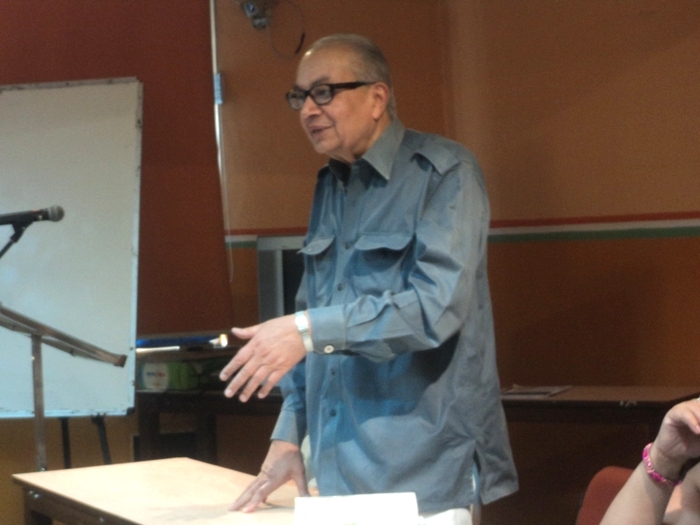A Glance at Thatcherism
On the 16 April, the students of class 12 participated in an interactive session with the Chairman of our School, Mr. Prafull Goradia focussing on the late Mrs. Margaret Thatcher.
Mr. Goradia started the assembly by telling the students the reason behind why they find most speeches boring. He said, Most speeches are boring because lecturers tend to tell the audience what they know. Rather than telling the addressees, what they want to know. So, instead of going about the workshop in the conventional way, where the speaker first speaks and then the audience ask their queries, on this occasion, the students first elaborated all that they wanted to know about the Iron Lady.
Why did Thatcher abolish free milk for children at school, when she obviously didnt win any political points for the move? or Why did Britains first Lady Prime Minister waste her countrys resources trying to win back the Faulkan Islands, when they were economically and politically unproductive? Also Why was Margaret Thatcher important to India and more specifically, why, as students do we need to know about her life? The questions put forward by the students seemed to capture the entire ' phenomenon' as it were that was Ms. Thatcher!
Mr. Goradias answer to each query offered an explanation that penetrated deeper than what the students rough perception was. He explained to us, why despite economic growth during her reign as Britains prime minister, the general population was hostile towards her policies. Apart from the fact that jin the 20th century, men didnt like being told what to do by a woman! Sir explained, Thatchers policies aimed at privatisation and had a capitalist approach to each issue, economic or political. This was much to the resentmenth of the labor unions.
[gallery columns="2"]
Among other things that the gathering found interesting about the discussion, was sirs interpretation of capitalism and socialism. He started by explaining the origins of both ideologies. Then, he said that socialism was nothing but stained capitalism. The only difference between a market economy and a planned one was that instead of the money going into the pocket of the rich businessman, it went into that of the greedy bureaucrat. And it is because all the major policy decisions are handled by the public sector, instead of the learned economist, that a socialist regime always calls for an unproductive economy.
From there on, he told the assembly about the kind of economic system followed by Ms. Thatcher, when she was at 10 Downing Street. It is best summarised in Ms. Thatchers words herself, The problem with socialism is that you eventually run out of other people's money.
The workshop was well received by the students and teachers alike. Mr. Goradia had patiently and yet in the course of a talk had offered us a comprehensive insight of the essence of Thatcherism.
I would be delighted to be a part of such events in the future as well.
By Ishan Mehandru, 12C (Humanities).
[nggallery id=151]













